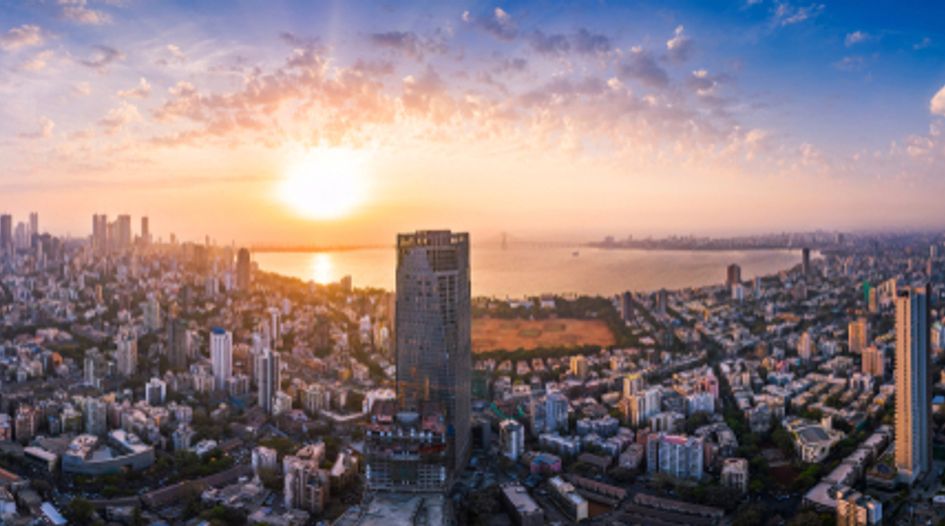India: counterfeiting remains a serious concern in both physical and online markets

This is an Insight article, written by a selected partner as part of WTR's co-published content. Read more on Insight
Global overview
Trade in counterfeit and fake products continues unabated despite new measures being developed and implemented against the rise of those products. Like the covid-19 virus, with every countermeasure, trade in counterfeit products mutates and poses new challenges. The Global Brand Counterfeiting Report 2018 estimates that the losses owing to global online counterfeiting was $323 billion in 2017, and the losses attributed to high-end consumer goods amount to $98 billion, both offline and online.
Counterfeiting is not just a financial loss. The substandard components and parts used in fake products also constitute a health and safety risk. Fake medicines, in particular, are potentially devastating to public health and put lives in danger. According to one OECD-EUIPO report, international trade in counterfeit pharmaceuticals reached $4.4 billion in 2016.
Counterfeiting became more pronounced during the covid-19 pandemic as the crisis opened new opportunities for counterfeiters owing to the strong demand for medicines, protective equipment and tests. For instance, according to the OECD chair’s note of 10 June 2020 on “Trade in Fake Medicines at the Time of the Covid-19 Pandemic”, in the United States, the Homeland Security Investigations arm of the Department of Homeland Security reported 668 seizures related to the pandemic, including counterfeit masks and fake medicines that had few or no curative effects on covid-19.
Counterfeiting in India
Counterfeiting in both online and physical markets has also become a grave concern in India. In the 2020 Review of Notorious Markets for Counterfeiting and Piracy published by the Office of the United States Trade Representative, an Indian website was cited in the list of the most notorious online platforms for sales of counterfeit products. Several famous markets in Mumbai, Kolkata and New Delhi were also included in the list of physical markets that were notorious for sales of counterfeit goods. For example, Heera Panna Market in Mumbai was reported to be a hub for high-quality counterfeit watches, footwear, apparel, accessories and cosmetics. The review also reports that conducting enforcement actions at those locations is expensive and challenging, as is ensuring the effectiveness of raids.
Legal framework
Regarding statutory laws in India against counterfeiting, the principal legislation is the Trademarks Act (TMA), which provides both civil and criminal remedies against trademark counterfeiting. The Copyright Act also provides both civil and criminal remedies against infringers.
There are statutory laws that recognise and protect designs, patents and geographical indications; however, the remedies available are only civil in nature.
Other pieces of legislation, such as the Drugs and Cosmetics Act and the Food Safety and Standards Act, also play a vital role in preventing counterfeit products, especially in respect of pharmaceutical and food products. The laws empower enforcement agencies to seize and confiscate adulterated, spurious or misbranded goods and to suspend the manufacturing licences of the people involved in such counterfeiting activities.
Border measures
Both online and offline counterfeiting do not survive on domestic production alone; it also entails the import and export of counterfeit products. In India, import of infringing goods is prohibited under the Customs Act 1962 and the Intellectual Property Rights (Imported Goods) Enforcement Rules 2007. Rights holders can record their trademarks with Customs so that the import of any products that infringe those trademarks is stopped.
Criminal prosecution
Section 103 and 104 of the TMA provides for imprisonment for a term of not less than six months, which is extendible up to three years, and a fine of not less than Rs50,000, which can reach up to Rs200,000 for false application of a trademark and selling goods to which a false trademark has been applied.
Section 115 of the TMA gives powers to the police in relation to the search and seizure of infringing and counterfeit products. The police must obtain a certificate of opinion from the registrar of trademarks before conducting a raid. If the police refuse to initiate criminal action, the right holder can file a complaint before a magistrate, and the magistrate can direct the police to take action and lodge a first information report against the counterfeiters.
A search warrant can also be obtained by approaching the magistrate, in which case the opinion of the registrar of trademarks is not required. In Sanyo Electric Co v State of Delhi (Crl Rev Petition No. 154/2010), the Delhi High Court held that a search warrant issued by the court under Section 193 of the Code of Criminal Procedure can be executed without the requirement stipulated in the proviso to Section 115(4) of the TMA. The court may seek the opinion of the registrar, depending on the factual matrix of a particular case.
Civil enforcement
Civil lawsuits relating to intellectual property are governed by the Code of Civil Procedure and the Commercial Courts Act 2015. Under the Commercial Courts Act 2015, commercial courts are empowered to pass summary judgments in IP cases. Recently, several lawsuits have been decided summarily, thereby saving the lengthy time taken in trials.
Rights holders can avail of civil remedies in the form of injunctions and seek damages or rendition of accounts. These remedies become available upon filing a lawsuit before a district court or high court that has pecuniary and territorial jurisdiction over the subject matter. Rights holders can also obtain interim relief in those civil actions, including an interim injunction against infringers during the pendency of the lawsuit and raids to seize infringing products.
The above civil remedies are also available against online counterfeiters; however, for effective enforcement against online counterfeiters, multipronged strategies are required, such as online surveillance coupled with visits to physical offices and warehouses. Physical investigation is necessary against online counterfeiters as it helps to identify supply chains, website owners, payment beneficiaries, etc. This way, if online counterfeiters conjure a new name or domain name to circumvent an injunction order, the same can still be effectively executed by targeting the infringers’ physical network, conducting seizures at their warehouses and physical offices and even seizing their bank accounts.
Anti-counterfeiting online
The Information Technology Act (ITA) provides for the liability of internet intermediaries, such as internet service providers, e-commerce websites and online payment gateways. The intermediaries can claim safe harbour by limiting their liability under certain exemptions provided under the ITA. Nevertheless, a right holder can still approach a court and seek specific takedown directions against intermediaries to curtail online infringement.
Countering the rising threat of counterfeiting
National IPR Policy
Indian businesses suffer tremendously from the impact of counterfeiting, especially with the exponential rise in online purchases. Taking this into account, India has outlined the National IPR Policy to curtail counterfeiting and promote awareness on IP rights that may discourage potential infringers from venturing into the trade of counterfeits. The policy recognised the need to build the capacity of the enforcement agencies at various levels, including by strengthening the IP rights cells in the state police forces. These cells have been extremely active, especially in relation to raising awareness of IP rights and conducting training programmes for enforcement agencies, including Customs and judicial forums.
Report of the Parliamentary Committee
On 23 July 2021, the Department-related Parliamentary Standing Committee on Commerce (the Parliamentary Committee) presented the 161st report on “Review of the Intellectual Property Rights Regime in India” in the upper house (Rajya Sabha) of Parliament. It acknowledged that counterfeiting and piracy are rising threats to IP rights and recommended specific legislation to curb counterfeiting and piracy in India. The report also opined that a method should be devised to estimate the revenue losses being incurred owing to counterfeiting and piracy and the level of those crimes being committed, especially from an economic perspective. A separate Central Coordination Body on IP Enforcement was also recommended to facilitate coordinated efforts involving various ministries, departments and government agencies.
Internet intermediaries
The Indian courts are now also taking a stricter view on internet intermediaries, and the scope of safe harbours enjoyed by intermediaries is narrowing, thereby putting more responsibilities on intermediaries to prevent online infringement. One effective legal framework to resolve issues relating to domain names in India is the IN Domain Name Dispute Resolution Policy (INDRP). Any person aggrieved by the registration of a ‘.in’ domain on the grounds that it is identical or confusingly similar to his or her name or trademark may file a complaint before the National Internet Exchange of India, an administrative body for resolving issues under INDRP. It provides a quick and effective grievance redressal mechanism, and the proceedings are in the nature of arbitration.
Conclusion
Increased awareness of intellectual property will have a direct and positive impact on reducing instances of counterfeiting and piracy. Although the statutory provisions in India are already well-equipped to give protection to rights holders against counterfeiters, this legal framework can be further bolstered, particularly if the recommendation of the Parliamentary Committee to have separate legislation against counterfeiting is accepted.
The National IPR Policy and the report of the Parliamentary Committee show the keenness of the government and its various enforcement agencies to bring reforms to effectively curtail the trade of counterfeit products. It is only a matter of time before the fruits of those efforts become apparent.





